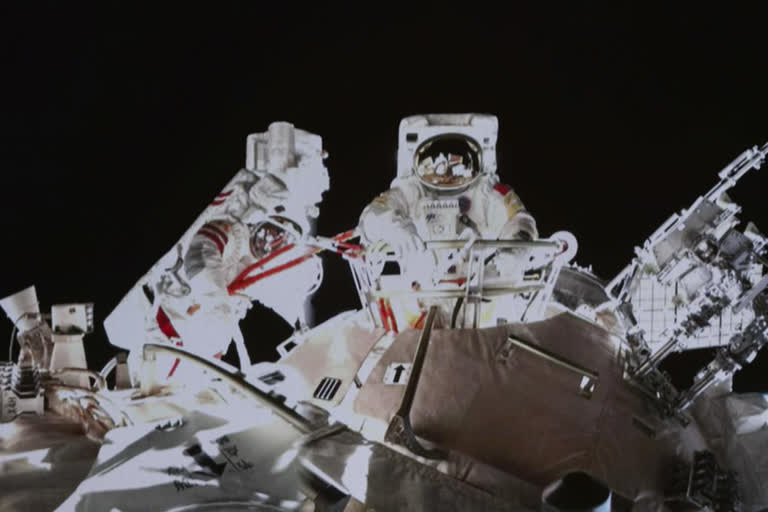Beijing:Wang Yaping on Monday became the first Chinese woman astronaut to walk in space as she moved out of the under-construction space station and took part in extravehicular activities for over six hours along with her male colleague Zhai Zhigang, official media here reported. The two moved out of the space station core module called Tianhe and spent 6.5 hours of the spacewalk in the early hours of Monday and successfully returned to the module, Xinhua news agency reported.
This marks the first spacewalk in Chinese space history involving a woman astronaut, the China Manned Space Agency said in a statement. China had launched the Shenzhou-13 spaceship on October 16, sending three astronauts on a six-month mission to the under-construction space station which was expected to be ready by next year. A native of Shandong province and mother of a five-year-old girl, Wang joined the People's Liberation Army Air Force in August 1997 and served as a deputy squadron commander before joining the second group of astronauts at the PLA Astronaut Division in May 2010.
In March 2012, she was part of the backup crew for the ninth manned Shenzhou mission series in June 2013 and took part in the 10th of Shenzhou series which lasted nearly 15 days. She is the second Chinese woman to have flown in space. During the Shenzhou 10th flight, Wang gave China's first space-based lecture inside the Tiangong I experimental module to more than 60 million Chinese students at about 80,000 schools across the country. She was selected for the present manned space mission in December 2019. While Wang and Zhai conducted the extravehicular activities (EVAs) which included the spacewalk on Monday, the third member of the crew, Ye Guangfu played a supporting role from within the module.
The pair returned to the core module at 1:16 AM (Beijing Time) after successfully completing their task in about 6.5 hours, the statement said. The mission further tested the functions of the indigenously developed new-generation extravehicular spacesuits, the coordination between the astronauts and the mechanical arm, and the reliability and safety of supporting equipment related to the EVAs, Xinhua reported. The three were launched into space on October 16 for a six-month-long mission in the space station, the longest manned mission in China's space history.
